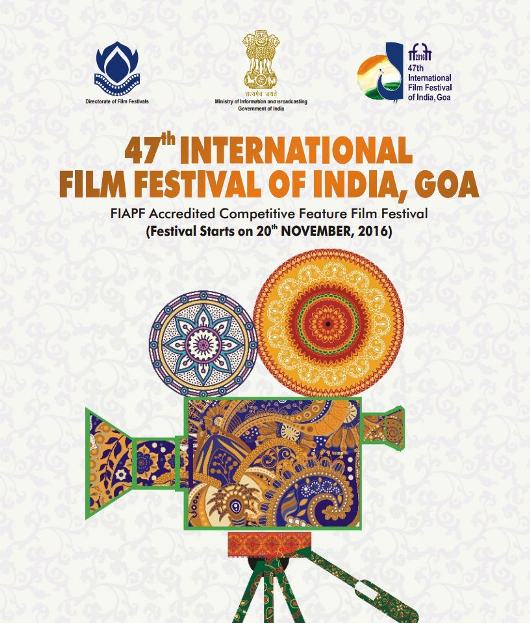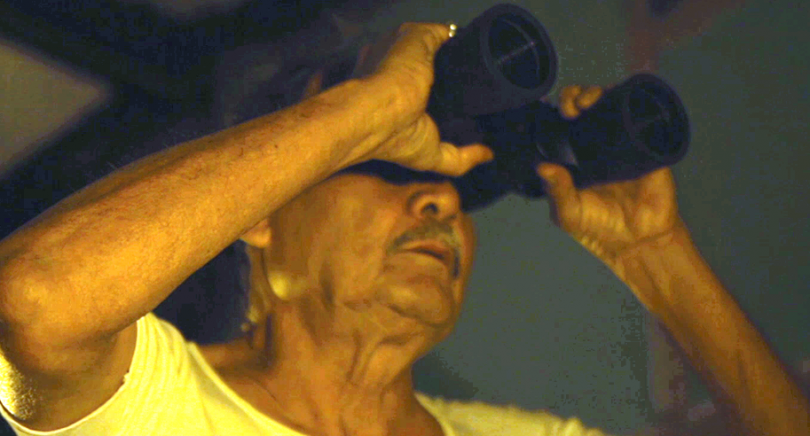
Parched, Review by Siraj Syed: Rani & Lajjo & Bijli & Thelma & Louise’s Rihaee
Get this right. Parched is not a remake. It is a nod to the soul of the 1988 film, Rihaee (Liberation, directed by Aruna Rajé), and a tribute to one of the most discussed climaxes in cinematic history: Hollywood’s Thelma and Louise, a 1991 milestone by Ridley Scott. One film old director Leena Yadav sets her tale in Rajasthan, enlists a youngish cast and a predominantly foreign crew, and tries to make a collage of several personal stories that she heard from real women. Stringing them together, she has the film getting unwieldy, uneven, even stencilesque. Nevertheless, the gender-based tragedy and the indomitable spirit of a few brave women provides a steady drizzle on the parched landscape.
Rani (Tannishtha Chatterjee), who was married at 15 and has been a widow for half her life, is trying very hard to get her son, Gulab (Riddhi Sen), married to a beautiful girl, Janki (Lehar Khan), from the neighbouring village. Her bosom friend is Lajjo (Radhika Apte), married to an abusive husband. They both are skilled and work for a local entrepreneur named Kishan (Sumeet Vyas), who runs a craft centre, along with his Manipuri wife, Naobi (Nancy Nisa Beso). Lajjo is childless and wants to conceive desperately, but fails. On top of this, her alcoholic husband, Manoj (Mahesh Balraj), batters her every night, branding her barren. The fourth woman in the story is Bijli (Surveen Chawla), a local erotic dancer, who performs in a tent. Working for a contractor, Sharma (Daddi Pandey), she doubles up as a prostitute.
Rani somehow raises Rs. 3-lakh as the price of her daughter-in-law, and Gulab is married. Janki has had a tormented past, and Gulab does not like her either, preferring to visit prostitutes. Lajjo is tired of the brutality of her husband, and Bijli is jealous of a new girl who might replace her. Kishan is hounded away from the village and Bijli is heart-broken after her professed lover Rajesh (Chandan Anand) reveals his plans of decamping with her, only to serve as her pimp. Having seen it all, the most devil-may-care of the lot, Bijli, takes the initiative, to help Lajjo conceive. She asks her friends to hop on a rickety, converted three-wheeler, and head for the hills. Not surprisingly, her prescription is no conventional medication. But with the only good man in the village having been shunted out, do these women stand a chance? Let’s leave the ending open.
The village is still plagued with old, age-ridiculed traditions, like forced child marriages, spousal and familial rape, and physically and emotionally abusive alcoholic husbands. Male-defined sexuality and sexploitation are to the fore here, with a conscious effort to stress the need for freedom of women in all these matters, as against the patriarchal, violent and abusive environment that they are forced to live in. Few films address these burning issues anywhere in the world. So, the concept is welcome. Before I discuss it further, let’s see what Rihaee and Thelma and Louise were all about.
Excerpt from the synopsis of Rihaee, “Like Jhumku there is a story behind every female character, and they have one problem or the other because of the fact that they are a woman.
The movie puts the double standard followed for men and women through various village characters. Mansukh's father, in the panchayat (village council), blames the women of the village to be punished, without saying anything about his son who was responsible for everything.” It was even more significant that a woman made the film, especially in 1988, when there were far fewer female directors.
Ridley Scott’s Thelma and Louise turns 25 this year, and to celebrate, stars Susan Sarandon and Geena Davis reunited on the talk show, Good Morning America, taking their seat in the distinctive 1966 Ford Thunderbird used in the film. Sarandon, who was 44 when Thelma and Louise was released, in 1991, is now 69, while Davis is 60.
An exhilarating and fierce tale of women’s liberation, the film told the story of two exploited and violated women who embark on a getaway road trip, after Louise (Sarandon) shoots a man who tried to rape her friend, Thelma (Davis). It won an Academy award for its female screenwriter, Syrian-American Carolyn Ann ‘Callie’ Khouri. “Let’s not get caught,” Thelma tells her best-friend-turned-partner-in-crime, after their run from the law appears to end and they are surely going to be caught. “Let’s keep going.” They then drive their dust-covered Thunderbird right into the Grand Canyon.
Teen Patti was a casting coup that raised expectations sky high: Amitabh Bachchan and Ben Kingsley and Madhavan. It’s fate became a liability for the debutant Yadav. Five years down the line, she has depended on dependable actors and completely eschewed stars. Moreover, her script is so deeply rooted in the soil that the costumes and landscapes provide perfect ambience.
Foreign productions have shown such a penchant for the north-western state that Rajasthan had become almost a picture postcard for authentic Indianness. You cannot fault Yadav on this count, because the subject is deeply rooted there. Where she falters is in her ambition to make it a dossier on all the problems and issues that affect village women: widowhood, alleged barrenness, earning a livelihood, dowry, child marriage, abusive and violent husbands, familial rape, prostitution, romantic dreams, wayward sons, borderline lesbianism, and more.
Most actors speak credible dialects, not all. Accents are sometimes uneven, ranging from Gujarati to Marathi. Adil Hussain is wasted in a role where he is barely recognisable, the scene having been shot mainly in blurred, silhouette-like images. Bijli’s entire track is more a showcase for the vibrant energy of the actress, and a plank for the introduction of Adil Hussain as the mystic lover, who is virility personified, than a well-written scenario. Of course, the anti-climax involving her quiet, macho admirer, none other than Sharma’s henchman Rajesh, deserves to be appreciated. Dialogue has an overdose of expletives, some for good effect, some over-the-top. For the rest, it is in the tone of the film.
Tannishtha Chatterjee (Island City, Gour Hari Dastaan, Angry Indian Goddesses, Gulaab Gang) is fluid as ever. Radhika Apte (Badlapur, Hunterrr, Manjhi - The Mountain Man) is unfettered. Surveen Chawla (Ugly, Hate Story 2, Welcome Back) turns in a spirited performance and wows the audience with unabashed causticity. Adil Hussain’s mystic (Ishqiya, English Vinglish, Life of Pi) is a caricature that could have been played by anybody. Though she has some diction issues, Lehar Khan (award for best child actress in Jalpari; now 16 years old) hits the right notes of expression and bewilderment. Riddhi Sen (from a Bengali family that has had many artistes; now 18) is the archetypal uncouth youth who keeps bad company and indulges in all bad habits. Sayani Gupta (Margarita with a Straw, Baar Baar Dekho) has such expressive eyes...and such a sympathy-drawing role. Mahesh Balraj just has to glower and rain blows. Good support comes from Sumeet Vyas (English Vinglish, Aurangzeb, Kajarya) and producer-turned-actress, Nancy Nisa Beso.
Others in the cast are Anuradha Adwani, Dinesh Pradhan, Kheerna Bhai, Ajay Gehlot, Priyanka Khan, Farrukh Jaffar, Kanwar Jagdish, Karandeep Singh and Tanya Sachdev.
Significant contributions come from Hitesh Sonik (from the Sonik-Omi family), Swanand Kirkire (lyrics; among the best songwriters around), Russell Carpenter (renowned cinematographer; incidentally, Leena’s husband, Aseem Bajaj, is a cinematographer too), Kevin Tent (Hollywood editor).
With such distinguished members in the team, Parched deserved better. You do root for the cause, and empathise with the predicaments of its protagonists. But in the end, you come out...no, not parched, just a little thirsty.
Rating: ** ½
Trailer: https://youtu.be/m69d-KNi2Q0








 CommunicAsia 2016 exhibitor Lightware appoints Abhishek Bajpai RM Mumbai
CommunicAsia 2016 exhibitor Lightware appoints Abhishek Bajpai RM Mumbai





















 Faiz
Faiz 




